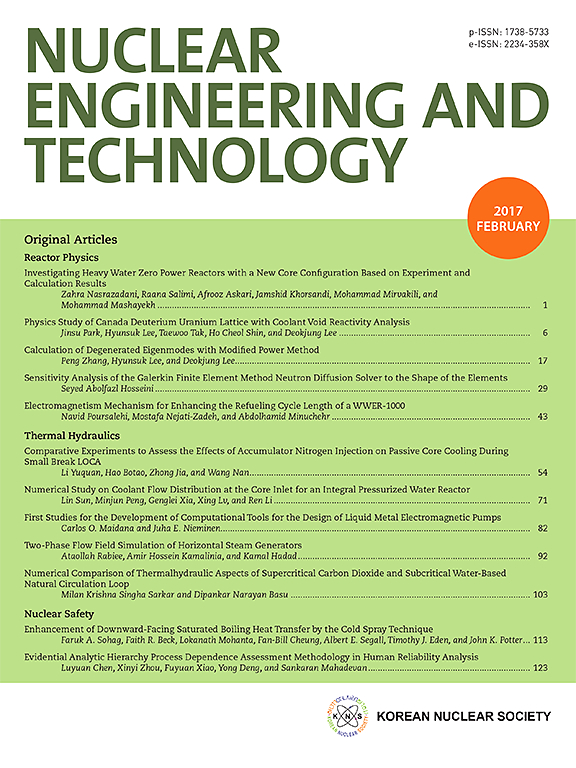Simulating nuclear fuel inspections: Enhancing reliability through synthetic data
IF 2.6
3区 工程技术
Q1 NUCLEAR SCIENCE & TECHNOLOGY
引用次数: 0
Abstract
Visual inspection of nuclear fuel assemblies is critical for assessing fuel reliability and ensuring safe operation. However, the sensitivity of real inspection data, along with its inflexibility and high collection costs, limits its use for research and development (R&D) tasks. These challenges hinder the ability to test and validate new inspection methodologies, making innovation slow and expensive. To address these limitations, we propose the development of synthetic nuclear fuel datasets that simulate fuel assembly inspections. These data sets replicate various defects and degradations in fuel assemblies, providing a controlled environment for hypothesis testing, operator training, and the evaluation of automated inspection techniques. Unlike real-world data, synthetic data offers the advantage of known ground-truth parameters, allowing for rigorous testing and validation. This approach enables the continuous development of inspection technologies, regardless of hardware availability and operational outages in nuclear facilities. By reducing the reliance on costly real-world experiments, synthetic data offers a scalable and flexible solution for the advancement of nuclear fuel inspection methods.

求助全文
约1分钟内获得全文
求助全文
来源期刊

Nuclear Engineering and Technology
工程技术-核科学技术
CiteScore
4.80
自引率
7.40%
发文量
431
审稿时长
3.5 months
期刊介绍:
Nuclear Engineering and Technology (NET), an international journal of the Korean Nuclear Society (KNS), publishes peer-reviewed papers on original research, ideas and developments in all areas of the field of nuclear science and technology. NET bimonthly publishes original articles, reviews, and technical notes. The journal is listed in the Science Citation Index Expanded (SCIE) of Thomson Reuters.
NET covers all fields for peaceful utilization of nuclear energy and radiation as follows:
1) Reactor Physics
2) Thermal Hydraulics
3) Nuclear Safety
4) Nuclear I&C
5) Nuclear Physics, Fusion, and Laser Technology
6) Nuclear Fuel Cycle and Radioactive Waste Management
7) Nuclear Fuel and Reactor Materials
8) Radiation Application
9) Radiation Protection
10) Nuclear Structural Analysis and Plant Management & Maintenance
11) Nuclear Policy, Economics, and Human Resource Development
 求助内容:
求助内容: 应助结果提醒方式:
应助结果提醒方式:


